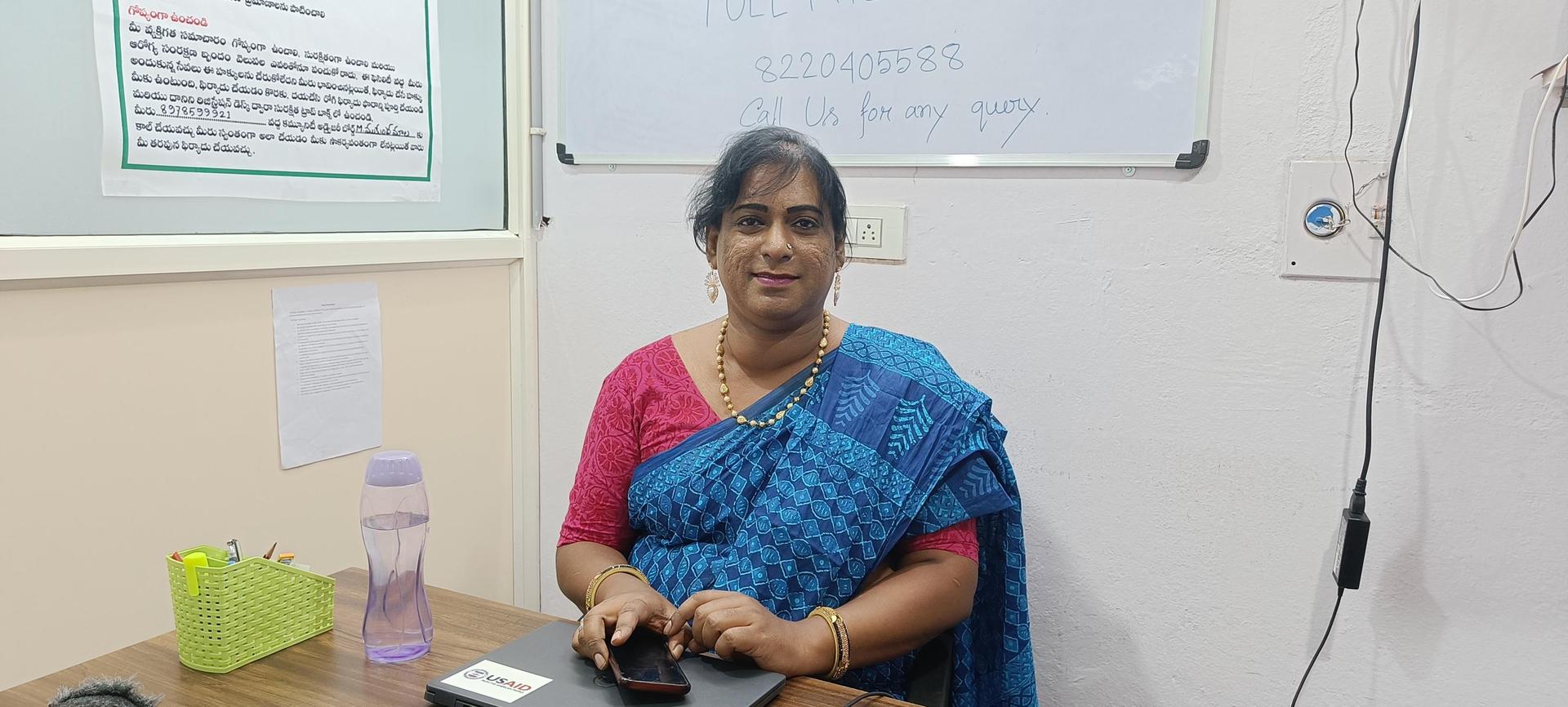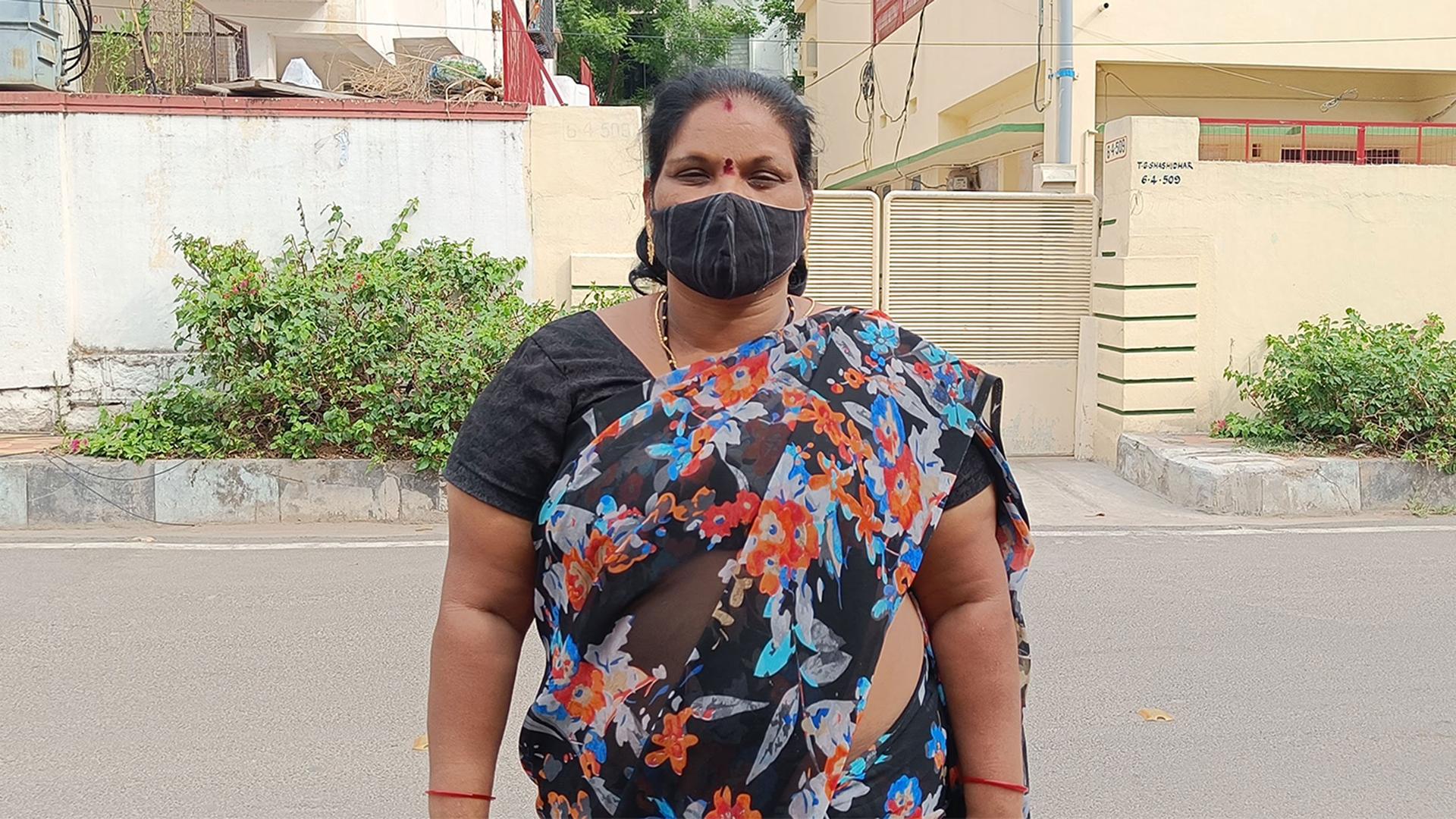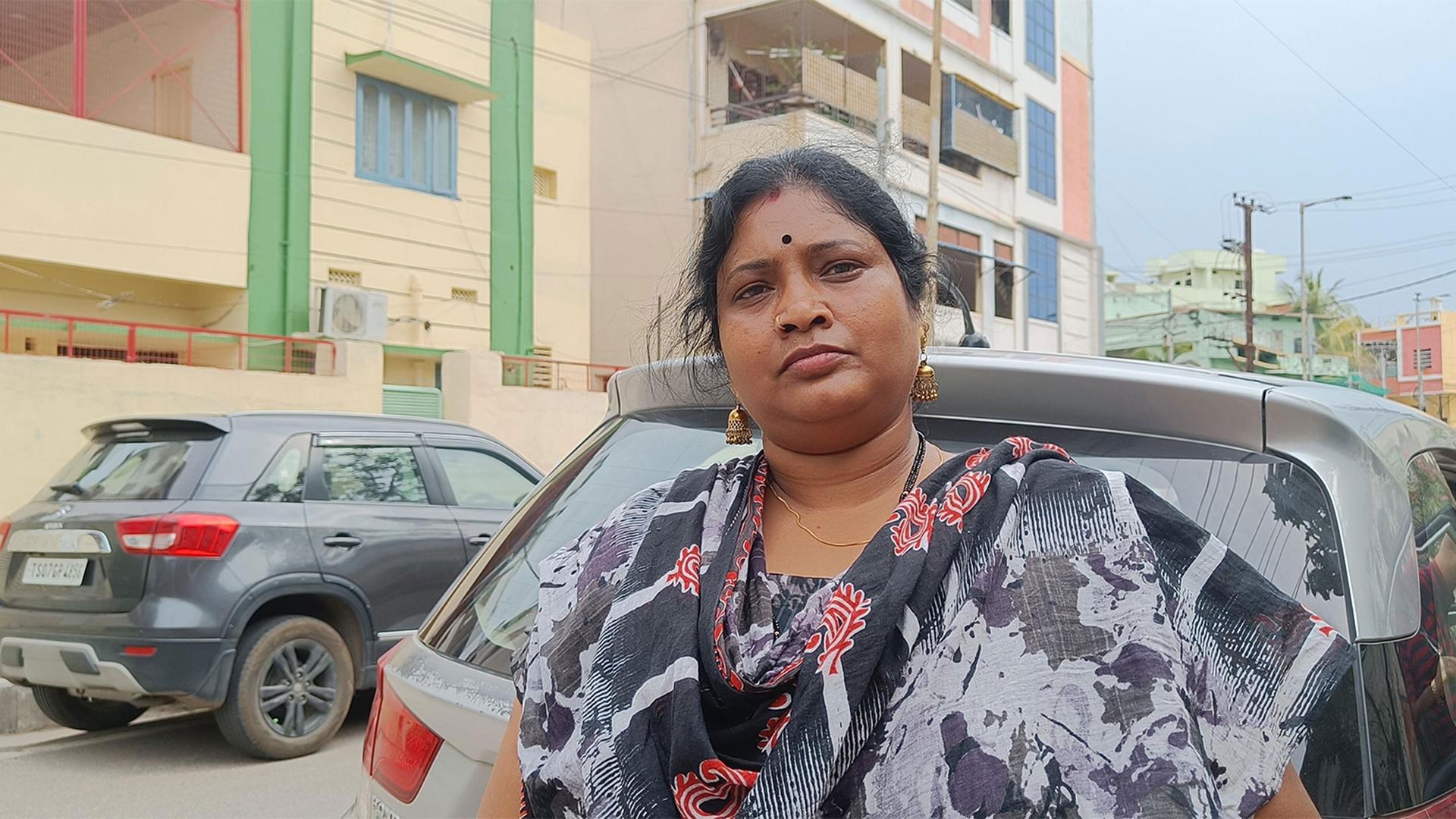‘We are demanding full decriminalization’: Sex workers in India rally for labor rights
“Gangubai Kathiawadi,” a blockbuster film in India out this year, features the harrowing life of a sex worker.
Set in the 1950s and ’60s in Mumbai (then called Bombay), the film’s protagonist is a young woman who gets trafficked as a sex worker and goes on to become a champion of sex workers’ rights.
Played by Bollywood starlet Alia Bhatt, she makes fiery speeches demanding respect for her profession.
Similar demands have been reverberating off-screen too.
Sex work is technically legal in India, but workers say they face stigma, harassment and violence — especially at the hands of the police.
In recent years, sex workers across India have been forming collectives, demanding full decriminalization of sex work and calling for it to be recognized as labor.
Related: Indian activists hope elderly priest’s death marks a turning point for human rights in India
A few weeks ago, their efforts scored a major victory.
In late May, India’s supreme court reiterated that sex work is a profession and ordered police to stop the abuse of sex workers.
“Police should treat all sex workers with dignity and should not abuse them, both verbally and physically,” the judges noted.
Sex workers across India welcomed the court order and in some cities, took to the streets to dance and celebrate.
“It has given [us] hope,” said Rachana Mudraboyina, a transgender activist and sex worker in the city of Hyderabad. “[Such] judgments work as a pressure on society.”

Mudraboyina, who started sex work in the early 2000s, recounts horrific stories of violence against members of her community. She said that clients have thrown chili powder into workers’ eyes and even hit them. Men on motorbikes have attacked sex workers on the street with beer bottles.
One time, she said, policemen stripped transwomen sex workers’ clothes and beat them until they collapsed.
“Police are sex workers’ biggest problem. They verbally abuse us, insult our family and treat us as if we’re not human.”
“Police are sex workers’ biggest problem,” said Sunitha, another sex worker in Hyderabad who goes by only one name. “They verbally abuse us, insult our family and treat us as if we’re not human.”

In the order, judges acknowledged this violence.
“When the Supreme Court said it, it almost felt like a validation of the violations that the sex workers have faced through the generations of police rule,” said Meena Seshu, a longtime sex worker rights activist and co-founder of the nonprofit Sampada Grameen Mahila Sanstha.
The court order from late May is one of several decisions bolstering sex workers’ rights in recent years.
Last year, India’s Supreme Court told the government to issue identity cards to sex workers so that they may access benefits and voting rights. Another major positive indication, Seshu said, was when the supreme court set up a panel in 2011 “to talk to sex workers to find out what they want.”
Related: Sex workers in Europe struggle to survive as clubs slowly reopen
Sex worker Ayeesha Rai, from the collective Veshya Anyay Mukti Parishad, said that her community is becoming more vocal and more visible in the mainstream, but the law is working against them.
Even though voluntary sex work by adults has been legal in India for decades, related activities, like soliciting or running brothels, are not. So brothel keepers become criminals.
That, in effect, criminalizes sex work too, Rai said.
“We are demanding full decriminalization along with the third parties, because we believe that these third parties are part of our sex work.”
“We are demanding full decriminalization along with the third parties, because we believe that these third parties are part of our sex work,” Rai said.
The ban on brothels and pimps is part of an antitrafficking law which Seshu and other sex worker rights activists say conflates consensual sex work with trafficking.
For a long time, advocacy around sex work was focused on the rehabilitation of sex workers and the prevention of trafficking. It created a misconception that all sex workers are trafficked and need to be rescued, Seshu said.
Related: Once the go-to place for surrogacy, India tightens control over its baby industry
When police raid brothels, sex workers — including adults — are often sent to rescue homes where they are kept for months, often against their will. Meanwhile, their children are left to fend for themselves, she said.
“Adult women in sex work have never been treated as adults, almost as if they did not have the ability to consent about their own work, about their lives.”
The Supreme Court recommended that states conduct surveys of rescue homes “so that cases of adult women who are detained against their will can be reviewed and processed for release in a time-bound manner.”
Not everyone is welcoming the court order, though. Some antitrafficking groups have criticized it.
“I can foresee a … large contingent of criminals escaping under the garb of ‘voluntary work,’” Sunitha Krishnan, a prominent antitrafficking activist, wrote on her blog.
Krishnan views sex work as “intrinsically harmful [the] for body, mind and soul,” and argues that it is a form of slavery.
Related: Superhero Priya tries to rescue New Delhi from air pollution on Earth Day
V. Sailakshmi, a 39-year-old sex worker in Hyderabad, feels otherwise. “If we’re doing this willingly, how can it be wrong?” Sailakshmi said.
Seshu said organizations that want to abolish sex work altogether have the ear of the government and society.
“Society’s morality about sex, per se, colors everything to do with sexual service providers,” she said, adding that there will be pushback against the decriminalization of sex work.
And so, while sex workers are rejoicing, Seshu said that the overall mood is of caution.
